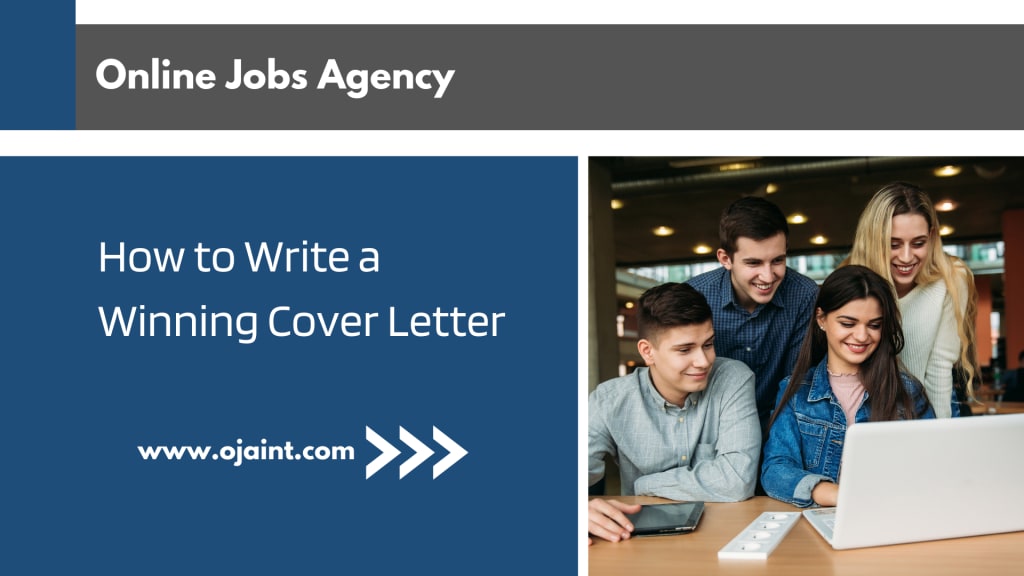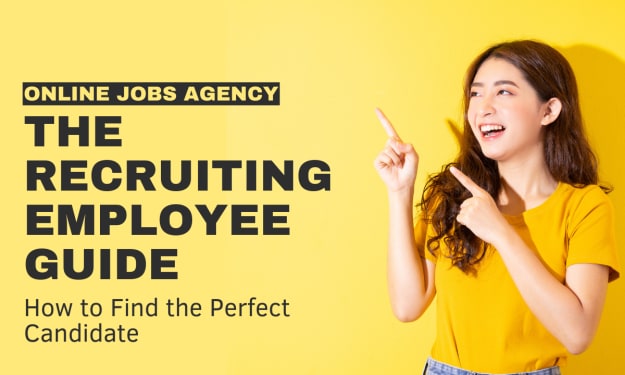How to Write a Winning Cover Letter
We'll walk through every part of a winning cover letter so that you know exactly what makes them effective. We'll also show you how to put together an effective cover letter in less than an hour using just one simple template.

If you're applying for a job and have never written a cover letter before, it can be overwhelming. There are a lot of things to consider, and each one is important if you want your letter to stand out from the pack. In this article, we'll walk through every part of a winning cover letter so that you know exactly what makes them effective. We'll also show you how to put together an effective cover letter in less than an hour using just one simple template—no prior experience required!
Write about yourself.
When writing a cover letter, it is important to emphasize your skills and experience. You should also explain why you are interested in the job and how you will fit into the organization. This is not the time for modesty; rather than underselling yourself, come across as confident about your abilities and achievements.
Once you have identified which jobs interest you, read through the job descriptions carefully so that you can tailor each cover letter accordingly. Make sure that all of your personal information is up-to-date before sending off your application materials by using a resume builder tool like ResumeGenius' Cover Letter Builder or LiveCareer's Resume Builder & Cover Letter Builder (which also includes an Interview Scheduler).
Be clear about what you want.
You don't want to send out a generic cover letter. You want your cover letter to be as targeted as possible, and in order for that to happen, you need to know exactly what job you're applying for.
Make sure you're clear about what type of position or company you're applying for and where they are located. If it's not already specified on their website, ask the recruiter directly where they'd like potential employees located so that when it comes time to write a cover letter, this information is right at hand!
Finally, don't forget about salary! Be specific about what kind of salary range would interest you if offered this role at [Company Name]. If there's anything else about benefits or perks that might motivate your decision making process here at [Company Name], please let us know now so we can ensure those details are addressed from both sides (yours and ours).
Don't be a robot.
Don't be a robot. If you've ever been in an interview and felt like the hiring manager was reading off a script, it's because they were. This is especially true when it comes to cover letters: people often write the same thing over and over again. Don't do this! Be different, be unique—and by that I mean actually write something personal that shows your personality through your writing style and choice of words.
To do this, think about what makes you different from everyone else who's applying for the job (this is where research comes in handy), then use that information to write something that stands out from other applicants' cover letters as well as from any templates or samples found online. Use words like "I" instead of "you" when describing what makes you special; explain why this position would be perfect for someone like you; show how motivated and excited about working there you really are; include specific details about what makes up your daily routine at work (or whatever experience directly relates to their opening), etc.).
Explain why you're interested in the company.
In order to do this, consider how your mission, values and goals align with those of the company. If there are any points where they don’t align, explain why you believe there will be room for growth and development as long as you join their team. Also explain how your skills can contribute to their success and how relevant the products or services of the company are to your own goals. Finally, explain how making a difference at this particular company would benefit everyone involved (yourself included).
Use a professional tone.
A cover letter should be written in a professional tone.
- Avoid slang and overly casual language — it's not appropriate for an official document.
- Don't abbreviate words, don't use words that are too long or too short, and steer clear of technical jargon.
- Use formal language, but don't be overly formal or stiff either; it's okay to sound conversational in your cover letter as long as you remain professional throughout the rest of the document (i.e., don't use "you" instead of "I").
Keep it short, sweet and to the point.
If you can't get your point across in a few sentences, you don't have a point.
Say what you do and how it makes an impact on the company's bottom line—and only that. Don't include a list of references or qualifications or accomplishments because they're already in your resume! And if any of those things are not relevant to this job opening, leave them out of your cover letter as well!
Don't send an unedited cover letter.
It's important to check your cover letter for proofreading mistakes before sending it to a potential employer. The last thing you want is to get the job because of your great skills, only to be let go two weeks later because of the poor quality of your cover letter. So make sure your cover letter is free from any typos or grammatical errors by having someone else read it over, or checking it yourself with Grammarly or another popular grammar site (such as Ginger Software).
Begin your cover letter with a greeting.
Your cover letter should begin with a salutation. If you're writing to a company whose name is on their website, you can probably use that first name as your greeting. If not, start with "Dear Sir or Madam." This shows that you are formal and respectful of the recipient's time and position—a quality all employers desire in potential employees.
End your cover letter with a closing salutation and signature.
- Your signature is optional. If you don't want to include your signature, simply write "Sincerely," "Respectfully," or "Thank you" as your closing salutation.
- Signatures should be typed in blue or black ink and legible.
- Signatures should be on the last page of your letter.
Set up your contact information section correctly.
For the contact information section of your cover letter, make sure that you include:
- Your name
- Your address (if you want to be considered for an interview, this will likely be the location where you would conduct it)
- Your phone number(s) (home and mobile if applicable)
- Your email address(es) (personal and work if applicable)
- Any social media links (such as Twitter, Facebook or LinkedIn). Note that it's usually not necessary to include personal profiles like Instagram or Snapchat unless there are specific reasons why this could benefit your application. Social media is also a great way for recruiters to get an idea of who you are so keep in mind that these platforms can say a lot about who you are professionally! For example: LinkedIn is ideal for professional resumes; Twitter serves more as a personal account; Instagram has become a great way for companies such as @AdidasOriginals (via their stories feature) to introduce their products/services through short videos taken by users who engage with them--you get the point!
Use these tips to make sure your cover letter is up to date and catches the recruiter's eye.
To make sure your cover letter is up to date, remember that the goal of a cover letter is to get the recruiter interested enough in you so that they want to interview you. So, go for the punchy opener and grab their attention with a good story about how you’re going to be an asset for their company.
To make sure your cover letter is short and to the point, keep it no longer than one page – two pages max. Make sure each paragraph has its own topic sentence and make sure there aren’t any run-on sentences. And don't forget: never use "I" unless absolutely necessary!
To make sure your cover letter is relevant to the job you are applying for, think carefully about what skills or experience best suit this particular position at this particular company. You may know someone who works there already who could give insight into what they're looking for in an employee; if not, do some research online by searching keywords like "duties," "responsibilities," "skills," etc., combined with words like “account manager” or “sales associate."
Conclusion
We hope that you've found these tips on how to write a cover letter useful, and we wish you the best of luck in your job search! Remember that with a little bit of effort and some careful thought, you can create an effective cover letter that will help get your resume noticed by potential employers. If you have any other questions about writing the perfect cover letter or need help creating one, don't hesitate to reach out to us at www.ojaint.com
About the Creator
Courtanae Heslop
Courtanae Heslop is a multi-genre writer and business owner.






Comments
There are no comments for this story
Be the first to respond and start the conversation.